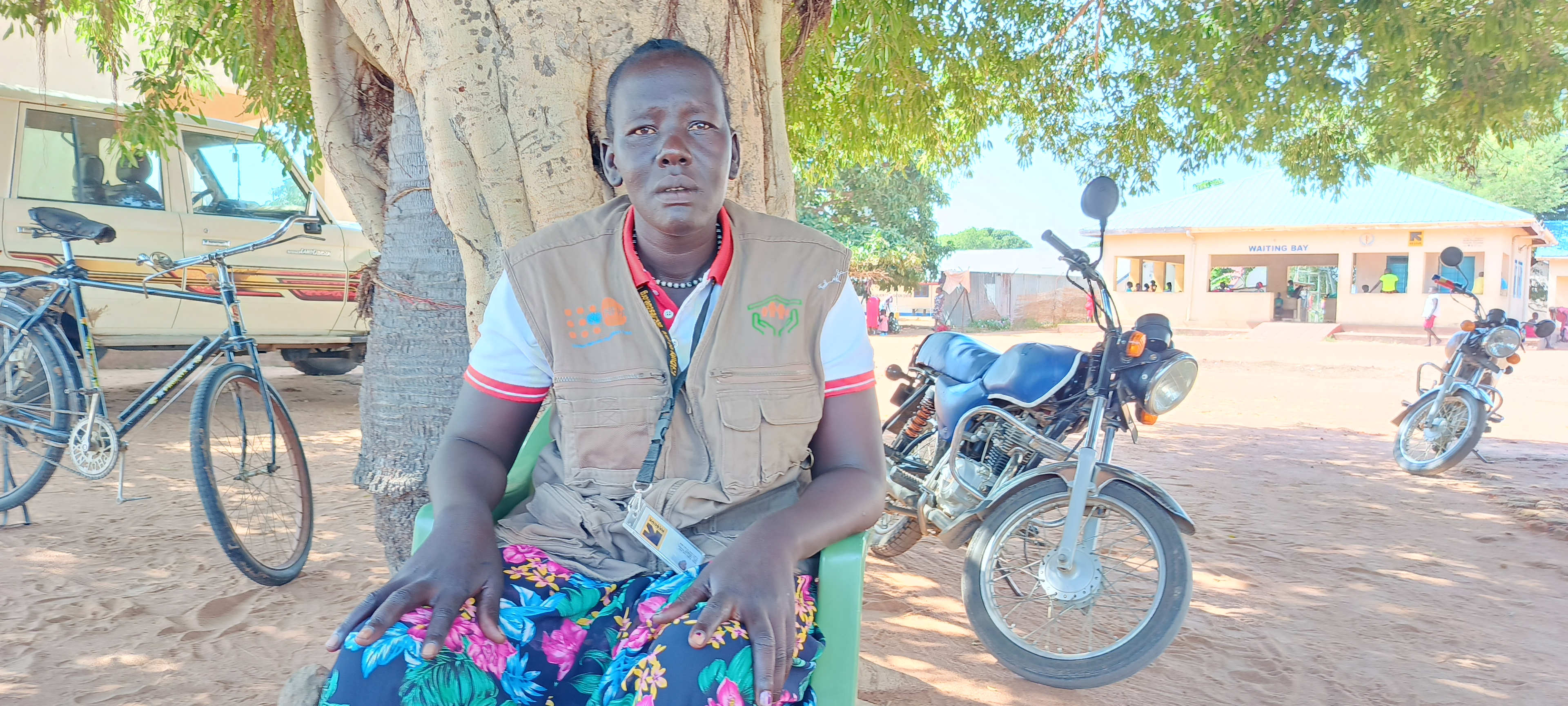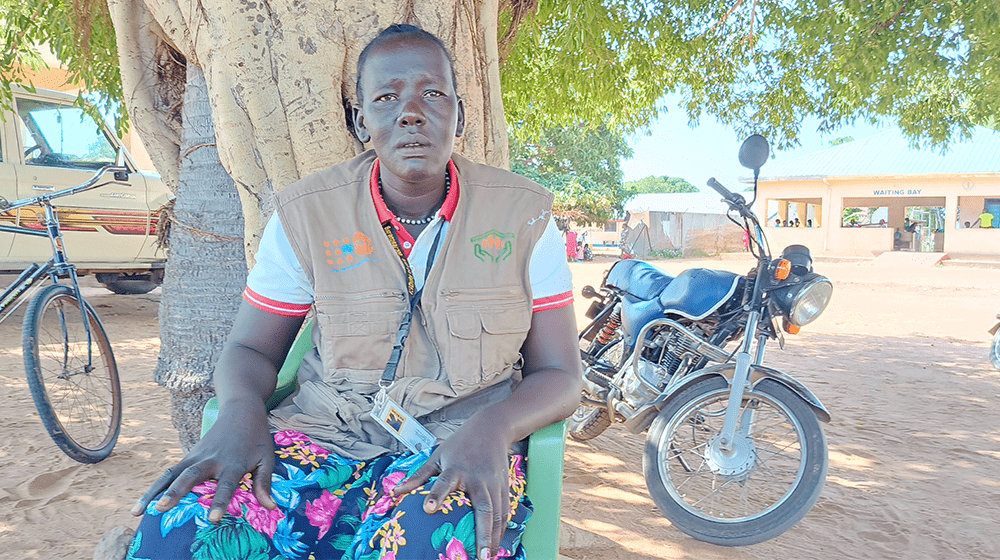Malualkon- Northern Bahr El Ghazal- “After all, I did not love you. Your father forced me to marry you because you are disabled. You can neither cultivate nor walk.” Speaking with a heavy heart through an interpreter, this is how Aluel (not her real name) painfully narrated her ordeal at the Malualkon One Stop Center (OSC).
The mother of two vividly recalls 2009, when her father forcefully gave her out for marriage in exchange for cows to a man she had never loved. She says she had never seen, let alone smell happiness in that marriage. Regina Ajok, a caseworker at the OSC said Aluel had contemplated taking her own life because she believed life had become meaningless.
“We received her in July, having walked in from her village , about 30-minutes away from the OSC. She was sorely exhausted, given her physical condition and the distance covered. She could not talk, and I had to make her take some rest to ease her stress,” she recounts.
Aluel said she heard about the OSC through community members who assured her that she would get help should she visit the place, having undergone years of emotional abuse and denial of resources from her husband.
“When I came here, I was given a blanket, a dignity kit, two pairs of bedsheets, and a mosquito net. The staff here were helpful. [With their help] I got better and let go of the idea of suicide,” she said through an interpreter.
Northern Bahr el Ghazal is grappling with high cases of GBV. On average, the OSC receives 10 cases of GBV daily, according to Regina. From January to October 2022, 334 cases of GBV, mostly cases of physical assault (138) and rape (59), were documented said, Regina. Paramount chief Mamer Diing Mathiang confirmed a high prevalence of GBV, acknowledging that there are many cases of child and forced marriage in Aweil East- Malualkon, an area under his jurisdiction. He also added that the situation could have been worse if the OSC did not exist.
“As I speak, we have another11- months baby girl in our custody here. Her mother succumbed to injuries three months ago and left this girl at 3-months old. the husband beat her from time to time and she sustained head injuries, became anemic, and died. She died a frustrated woman, with no decent burial. I had to mobilize people in the market to bury her remains,” recounts a visibly disturbed Regina
Chief Mamer observes that the ongoing flash floods, rampant poverty, and hunger are underlying factors for the steep rise in cases of GBV, especially child marriage, something the other chiefs agree with him. “
“People in low and highland areas have been affected by the waters. Crops have failed, hunger is bitting, and no food is coming from Khartoum because the roads have been washed away. So, some of the parents end up marrying off these young girls for livelihood and survival,” said Chief Mamer.
The commissioner of Aweil East County, Kiir Yor Lual, also acknowledged the fact that GBV cases are very high, which he attributes to the current cycle of unprecedented floods sweeping through Northern Bahr El Ghazal. The floods have affected more than 130,000 households, including vast acreages of farmland, leading to crop failure and acute food shortages.
“This is a direct threat to livelihoods. Schools and health facilities have been submerged in the water. There is widespread hunger. Families, including children are sleeping in the open. Such hardships definitely lead to GBV,” he noted.

“Aluel regularly visits the OSC,” said Regina. “She is gradually picking up her pieces and moving on with life as she babysits to raise money and put food on the table. Her wish is to have well-wishers take care of her two children as the pressure to look after them is too much,” Regina reported.
“Women and girls with disability suffer the triple burden of disability, discrimination and violence. Their capacity to access services is hampered by the forms of impairment that they present, and the stigma and discrimination along the service delivery continuum. Most social settings normalize violence against them as empathetic attention,” says Catherine Baga of UNFPA.
The OSC not only caters for women but also cases of violence against men have also been reported. “Men go silent in most case They don’t report. We have received some cases of violence meted on some men by their wives,” said Angelina Alakor Dut, a case worker at the center
According to Angelina, the center also works collaboratively with the South Sudan National Police Service-SSNPS, who referred 115 cases of various types to the Centre.
Aluel is one of the 334 survivors helping to break the silence against GBV and child marriage. The OSC continues to support these women and girls, men and boys through survivor-centered safety, medical, psychosocial, and legal aid.
Shruti Upadhyay, the Gender Specialist at UNFPA, stresses the need for strategic actions in the service delivery and access to justice sectors that are tailored to the peculiar challenges and unique needs of women and girls with disabilities exposed to and at risk of GBV. She urges communities to consider the plight of women and girls with disabilities as critical human rights concerns in humanitarian situations, especially the conflict, covid-19, and climate change nexus.
“As we mark this year’s 16 Days of Activism against GBV, let us act now and be accountable to end GBV against women and girls with disabilities,” she calls out!


